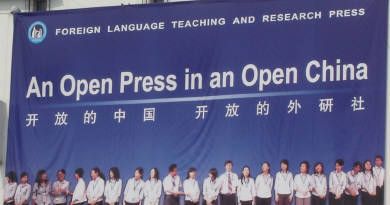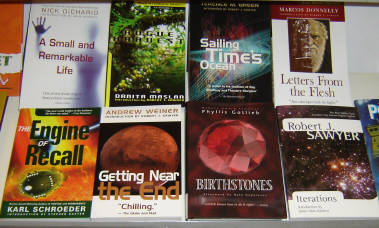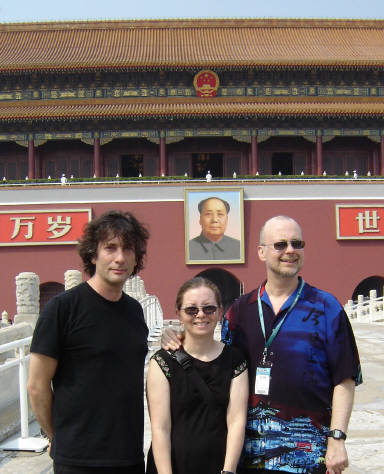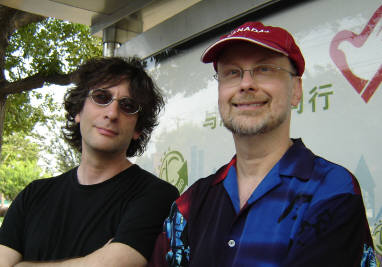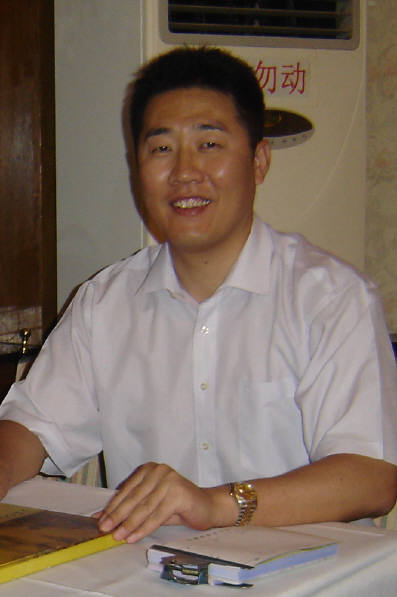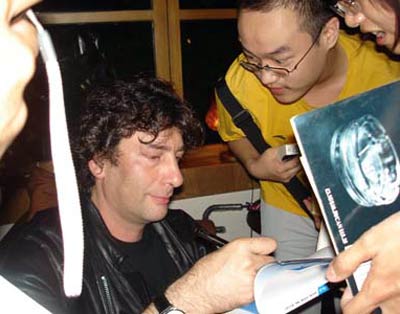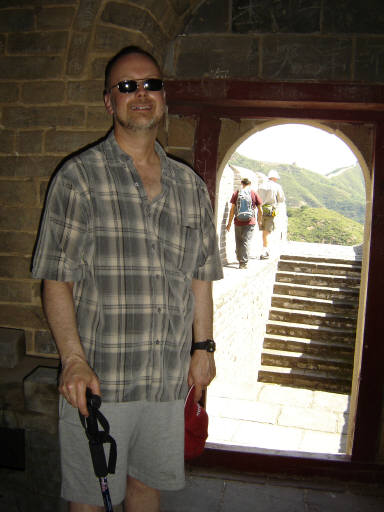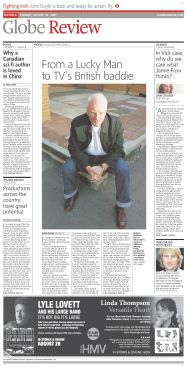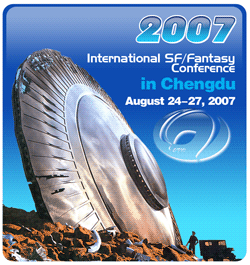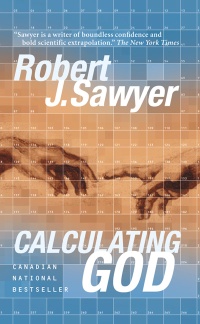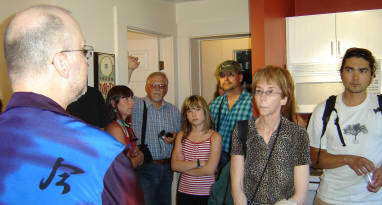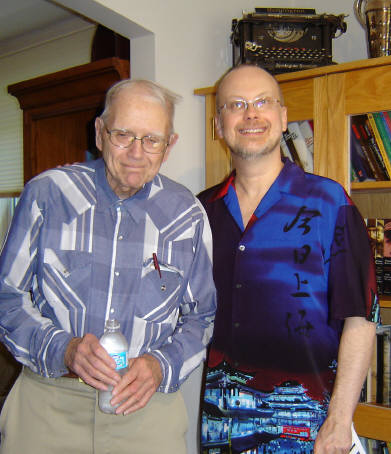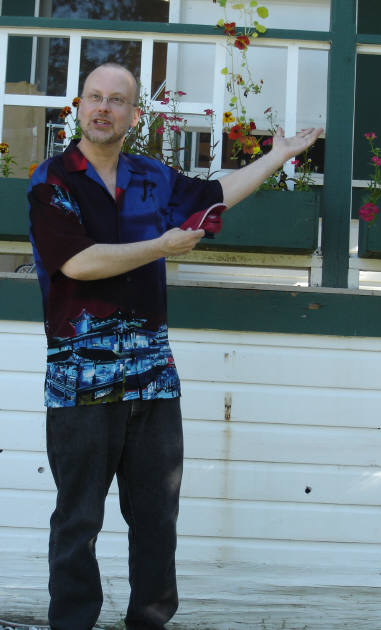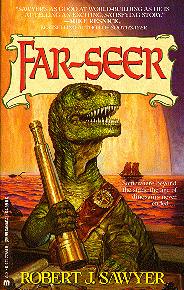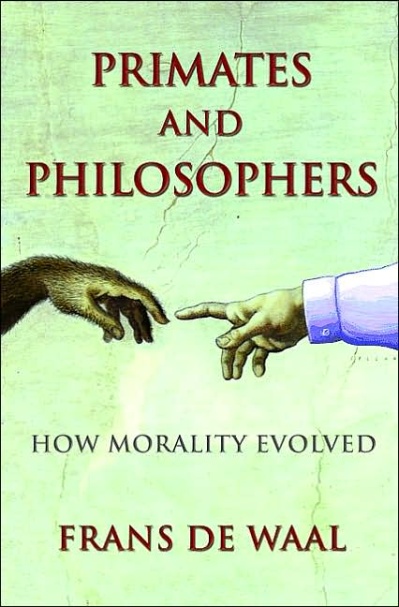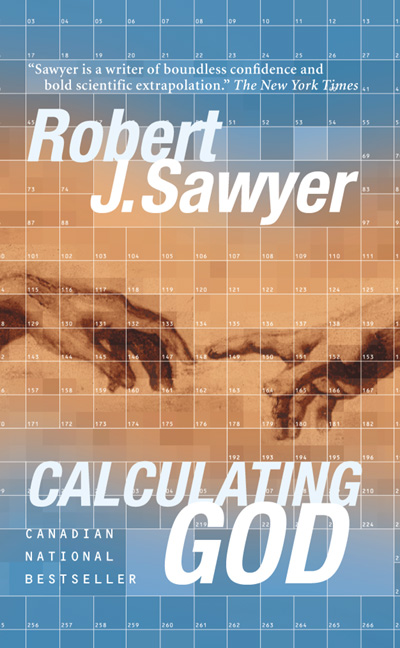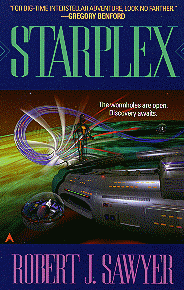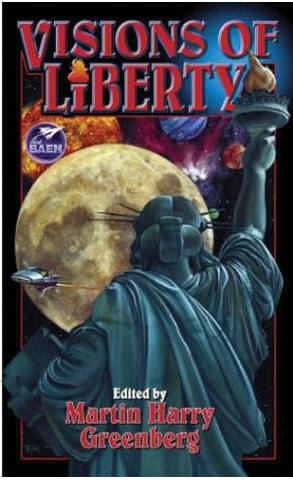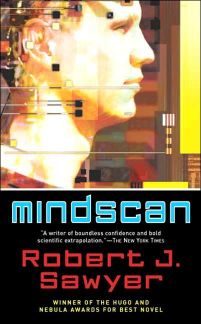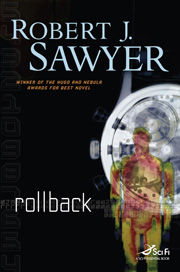Dennis Mullin has yet again delayed release of the final Aurora ballot for 2007. It was to have been released in July; he then changed that to today, Saturday, August 18 -- handily making sure that no ballots or copies of work could be available for Con-Version, the Calgary regional con, which is happening this weekend (and, save Con*Cept, the last Canadian regional prior to VCon, where the awards will be given this year).
But that's not delay enough, apparently. He's just now announced: "The 2007 voting ballot should become available on the website during the August 21-27 time period." That puts the release date of the Aurora ballot two full months after the originally announced date for the close of nominations; the Hugo administrators normally turn around the ballot within two weeks.
We've had the same problem over and over again, with the tallying of nominations being dragged on forever, and the actual voting period being truncated to the point of becoming merely a ballot on name recognition, since few could read the nominated works in the tiny window Dennis has left us.
The truncated window has other impacts, too, of course: with sufficient notice, nominees might actually make an effort to go to the CanVention, which is supposed to be a congress gathering fans and pros from across Canada; waiting until so late in the game to announce the ballot prevents some people from being able to do that, and forces others to pay higher airfares (WestJet and Air Canada both had seat sales to Vancouver last week, for instance; the discounted fares are no longer available). I myself have reached the point where I have to make a decision about VCon ... and, with regret, and in the absence of a final Aurora ballot, have made the decision not to go.
As I say, this has been an on-going problem, and I urge those who DO make it to VCon to attend the CanVention business meeting and engage in a dialogue about ways in which the process can be fixed. Here's the text of an open letter I sent two years ago on the same topic:
Date: Tuesday, May 17, 2005
To:
Dennis Mullin, Aurora Awards committee
Peter Jarvis, Aurora Awards ceremony coordinator
Randy McCharles, co-chair Westercon 58
John Mansfield, co-chair Westercon 58
With copies to:
The Robert J. Sawyer newsgroup
The IFWA Slush Pile
Gentlemen:
As of the update today, May 17, 2005, the Aurora Award website says the final ballot is "Currently being prepared. Voting ballot will be available no later than May 23. Voting deadline will be mid-June."
I have no novel eligible for the Auroras this year, and so no vested interest in the outcome of the long-form voting, but, guys, this is ridiculous, and really unfair to the nominees, especially in the long-form categories.
The proposed timetable suggest that readers find and read five books in three weeks (assuming no tie; there could well be more than five books on the final ballot), in order to vote by mid-June. Even if they have 25 days (May 23 to June 17, say), that requires conscientious voters to read A BOOK EVERY FIVE DAYS in order to vote, which is an awful lot to ask. Yes, of course, some voters will have read one or two of the nominees, but many will have read none in advance of the ballot being released.
If the ballot was out RIGHT NOW -- today or tomorrow -- and if voting could continue to just before the awards ceremony (with a ballot received-by date of June 29, say), maybe, just maybe, there's enough time for fair, conscientious voting. But I really think you owe it to the awards to consider handing off the ceremony to Con*Cept in Montreal, or some other convention later in the year.
At this point, it doesn't matter why it's take so long to produce a final ballot (much longer than the proposed time being given to voters to actually consider the works on that ballot), so no explanation or blame is appropriate. But the awards need to be fair and just; rushing the actual voting does nothing but turn them into a popularity contest (the known names, or those whose works the most people had already read prior to the ballot coming out, will get the most votes, since there won't be time to track down the works by newer/less-known writers).
As a writer who is an established name now, I'd hate to win that way; as a writer whose own early career got a boost from an early Aurora win (in 1992, for my first novel), I'd hate to see the next generation of new voices deprived of such a possibility.
Respectfully submitted,
Robert J. Sawyer
